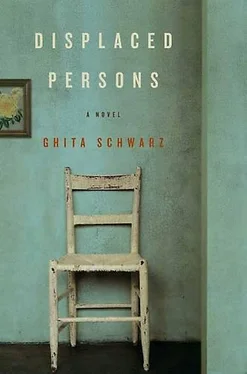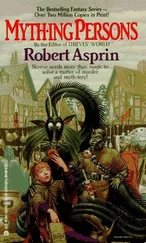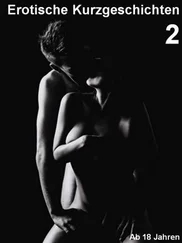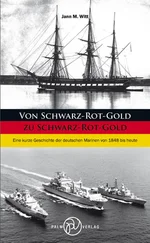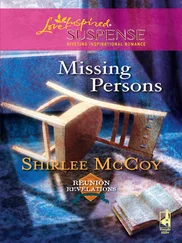Pavel, please, said Fela. Let us not-
Perla reached across the table, patted Fela’s hand. Pavel, of course Pavel. I must accustom myself. But sometimes you have a picture burned in your brain.
It was true, thought Pavel. Sometimes a picture burned in the brain, a brand. He had one of Perla-coming home to her father’s house in winter, wearing only a slip and an undershirt, almost naked, shivering, her white skin pink from the cold, her elbows bent at her sides.
You gave your clothes away, said Pavel.
What? said Perla.
Yes, that time-you saw a family without coats being sent-
Pavel, said Tulek. You must have heard who they have in the jail.
I hid in her father’s house, said Pavel. He saved my life, that time.
You must have heard, repeated Tulek. Kresser.
Kresser? said Pavel. The name came out of him like a casual question. That name! A name he spat at. He felt his heart gallop a moment, then he stilled it. His voice came out quiet, serene. Kresser. Hmm. Still alive.
Oh yes, said Tulek. No one has killed him yet.
What, now? His old activities, I suppose? He was a thief before the war too. So I heard.
Tulek said, No, no. Listen: someone denounced him. They have him not for stealing but for crimes. You know, against his own prisoners.
Oh, said Pavel. Oh.
Fela was looking at him, worried. She wanted the conversation to change.
Perla said to her husband, Pavel knew him too?
Ha! Tulek gave a short laugh. Who knew him once would not forget him. Great creativity, that one. Great creativity. An artist, one might say. Original, inventive. Who says Jews cannot produce great works? That one could compete with some of the Ukrainians.
Pavel didn’t laugh. A Jew in the jail for crimes. Probably they had caught him while up to some certain illegal activity, and someone else, a fellow smuggler even, had recognized and named him-many people went through that labor camp before it was liquidated. No doubt Kresser had managed to take another position of power when he moved on to the next one. Or perhaps not. Perhaps that little unit in eastern Germany, where they crafted helmets with machinery once meant for pots and pans, had been Kresser’s only experiment with cruelty. Perhaps Kresser, once the typhus epidemic had wiped out half the unit’s population, had seen Pavel and his comrades, those whose fevers were subsiding, carry the dead beyond the barracks, into an abandoned field designated by the camp commanders. Perhaps Kresser had seen the prisoners take the blankets of the dead, the blankets stained from shit and blood, scattered with lice, and search for a clean corner, a small strip of uninfested wool, to wipe the bodies for burial. Perhaps Kresser had seen.
SHE WAS A GRACIOUS woman, said Fela when they were alone again, strolling to the apartment. Really. You could see she was very fine. From a fine family. A lady.
Pavel saw that Fela meant it. She had a sweet little son, ventured Pavel.
Fela said nothing.
I didn’t dare ask.
It is right not to ask, said Fela. Too painful to speak of it.
But what of this man? said Pavel. What do you think?
What man? Kresser? said Fela. It has nothing to do with you.
He paused a moment. The image of Kresser in a cell did not please him. It should please him, he thought. But there were Germans roaming free, Ukrainians obtaining visas. What did Kresser think now?
I want to go see him, Pavel blurted.
What? said Fela. Her voice still quiet, but alarmed. What? Why do you need the trouble? We have things to do here! Our applications, we need to earn-I have only six months left, and I want the child born on American soil. American.
I want to see if he’s sorry.
Sorry! Fela gasped.
He was upsetting her. No, no, Felinka. No, not to say anything, just to confront him-so he knows-
He is not sorry! People like that-criminals like that-they never change, even if they are Jews! Especially if they are Jews. To do what that kind of person did! He will not change, Pavel, not for you, not for me, not for anyone. Please! What can it prove, what can it show?
But for him to be in an American jail-for them to-
Ah! Fela had caught him. You want him out!
He felt his face darken with shame. No, no.
You want him out.
I just want to ask him. For them to judge-
It is not you they judge, Pavel.
No, said Pavel. It is not. But this is something-this is something to keep inside, to keep among people who know what it means. These Americans! He stopped. Then started again, anger leaking out of his mouth. These Americans! They marry German women who sent their husbands off to war, and now look! Now it is all a court, a court to make a spectacle, a scandal, out of us!
It is not your scandal! It is not our scandal!
But it is!
No. Our scandal is that we are here. We are here! Pavel, how long have we been waiting? Four years since the end of the war. Four years in Germany, living with the Germans! That is the scandal, that is the scandal. Let these others make their little history. Let this criminal pay, Pavel, let him pay. A thousand payments like his would not be enough. Fela’s voice shook, uneven, as if there were a bubble of air in her chest. Worry for your family, Pavel! You worry for your family, first! Then go to the others.
Pavel wanted to shout: Did I not take Chaim out of jail? But he knew that Fela would respond sharply and that he would not be able to find a retort. He looked at her face straight on: almost a challenge. Perhaps she might cry. Really, he wanted her to cry. If she did he would reach over to her, smooth her hair to her cheeks, rub her back, comfort her. If she did he would say, of course, mammele , my loved one, whatever you like, whatever you want, I will do.
HE THOUGHT IT WORTHWHILE to try his small access with Yidl Sheinbaum, again reelected as head of the Jewish Committee. Now everyone called him Yidl, soldiers, children, everyone. Since Hinda’s wedding they had nodded at each other in passing on the street. Yidl had shaken his hand once or twice at the committee meetings that Pavel attended. An air of royalty about him, benevolent dictator of the refugees. It was rumored that the visas were slower because Yidl worried about the end of his reign, the kingdom he had made, its city of rebuilt humans. But this was too terrible to consider seriously. The British hated Jews; that was plain from the struggle they had made over the Palestine question, and from the stinginess they still had with immigration papers to England. Hinda and Kuba had received permission to go to England for only two years, and now waited for a visa to New York to come before time ran out. Even the young orphans they took in came back twelve months, eighteen months later, preparing for a life elsewhere, New Zealand, South America, all kinds of places. As for the Americans, Yidl did not have the same connections with the American authorities as he might have if he had allied with the Jewish Committees in the American DP camps. People had spoken about the possibilities, but plans had fallen through, who knew why; all those German Jews in the American zone committees, one of the Belsener leaders had said, they do not respect the Eastern Jews, what do we need this for, we’ve built enough by ourselves. Whatever the reason, Yidl had not made the alliance. And as a result, with the Americans-so careful with their visas, so willing to take in these others, gentiles, anyone fleeing the Russians, victims of the Germans already forgotten, already an annoyance, a problem, a trouble-Yidl did not have the influence he deserved.
But surely Yidl’s friends had some way of maneuvering with the immigration authorities, for their own friends. Many had left already, only some through family connections already in the United States. Pavel himself tried to work through his second cousin, a man in New York from his mother’s side, but of course Hinda would be first, as she already had a baby. Yidl must have some way. He was a good person to know. For this reason Pavel left word through his friend on the committee that he might have something to say, an opinion. Pavel was not yet sure what it was, but he had an idea about Kresser.
Читать дальше
